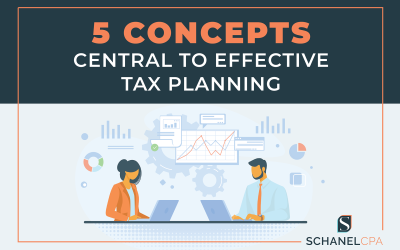
As the gig economy grows and remote work become a bigger part of the US economy, more people are working from a home office. Deducting expenses for a home office can save you on taxes, but there are guidelines on what qualifies. Here’s What You Can Deduct on a Home Office:
Who Qualifies for a Home Office Deduction?
The IRS has two stringent rules to determine who qualifies:
- The claimed space must be used regularly and exclusively to conduct business. This means the kitchen table won’t qualify, but an empty bedroom, a dedicated portion of a room or a separate structure on your property will.
- The claimed space must be your principal place of business. You can use other locations to run your business, but your home office needs to be where you conduct the most important activities of your business. If you have a separate workplace, but your home office is the main location where you perform administrative or managerial functions, this will also qualify.
What About Employees Who Have a Home Office?
Prior to passage of the Tax Cuts and Jobs Act in December 2017, employees were allowed to deduct home office expenses if they performed tasks at home for the convenience of their employer. Under the new law, deductions for all employee business expenses are suspended through 2025.
If this applies to you, consider asking your employer to set up an accountable plan so you can be reimbursed for your home office expenses. For remote workers, this may be your best option.
Can Partners in a Partnership Deduct Home Office Expenses?
If your partnership agreement requires you to pay home office expenses, these expenses can be deducted.
Do Shareholders of an S-corporation Qualify?
Shareholders of an S-corporation are considered employees of their corporation. Like all other employees, deducting home office expenses as an employee business expense will not be available again until 2026 under current tax law. Setting up an accountable plan is a win-win all around: your S-corporation gets the deduction, and you get a tax-free reimbursement for your documented expenses.
What Expenses Qualify?
- Direct expenses. Expenses such as repairs made exclusively for that part of your home can be fully deducted.
- A percentage of all your expenses to maintain, own or rent your home. This includes mortgage interest, property taxes, homeowner’s insurance, utilities, general home repairs, the cost to rent your home, security systems, and cleaning services. The deductible percentage is based on the relative square footage of your home office compared to the entire home. Any portion of mortgage interest or property taxes that are deducted as a home office expense must be subtracted from your itemized deductions on Schedule A.
- You can deduct a percentage of the cost of your home. A percentage of the costs to renovate or remodel your home is also included. If you renovate or remodel your home office, these expenses can be either deducted or depreciated. However, if you sell your home later, you’ll have to recapture this depreciation as ordinary income.
What Report do I File?
These expenses are reported on Form 8829. The total deduction is limited to the related business income. This deduction then flows to Schedule C if you’re a sole proprietor.
Partners in a partnership deduct home office expenses directly on schedule E as unreimbursed partnership expenses (UPE).
What Records Do I Need to Keep?
You need to keep documentation of all the expenses you are deducting, which will include your utility bills and repairs.
Is There a Simpler Way to File?
Yes! Since 2013, the IRS has allowed a simplified method. If you use this method, your deduction is a flat $5 per square foot of your home office, up to a maximum of 300 square feet for a deduction of up to $1500. With the simplified method, since there’s no deduction for depreciation, there’s no recapture of depreciation when you sell your home.
Will this Trigger an Audit?
Many small business owners fear that reporting expenses for a home office will trigger an IRS audit. With so many small businesses out there, the IRS simply doesn’t have the resources to audit them all. If you are audited, you need not worry if you followed the process and kept records.
Deducting home office expenses is a great way to reduce your tax bill if you work out of your home. Call our office if you have questions about deducting home office expenses or if you need help with an accountable plan.
Schanel & Associates is a CPA firm specializing in accounting, tax, business valuation and litigation support serving Palm Beach, Martin and St. Lucie Counties and beyond since 1993. Our CPAs and accounting professionals work with individuals, businesses, estates and trusts to provide everything you need under one roof. For more information, contact us today at 561-624-2118.
Glenn Schanel is the founding Principal of Schanel and Associates. Glenn Schanel is a CPA with over three decades of experience helping people and organizations manage, make sense of and benefit from their finances. He oversees areas that include auditing, accounting, tax, business valuation, forensic accounting, litigation support and other consulting services to both business and individual clients.



